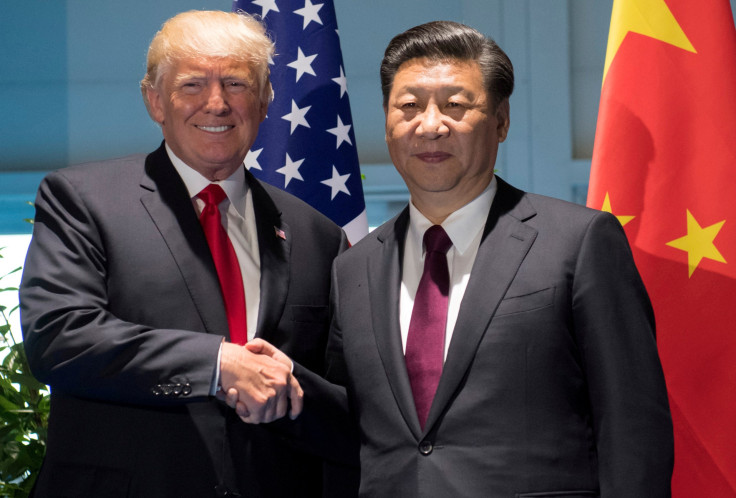US-China Trade War: Beijing Not Making Any Concessions, Chinese Commerce Ministry Clarifies

In a speech Tuesday, Chinese President Xi Jinping said the world’s second-largest economy would open itself further and reduce import tariffs on products like automobiles, and those comments were seen by some as China blinking in the ongoing trade standoff with the United States. President Donald Trump took to his Twitter account to thank Xi for the latter’s “kind words on tariffs and automobile barriers.”
But Trump appears to have misread the situation completely, a fact highlighted Thursday by Gao Feng, a spokesman for China’s Ministry of Commerce, who reiterated the Asian country was prepared and unhesitating to retaliate if the U.S. decided to escalate the trade war with China. Gao also stressed that nothing in Xi’s Tuesday speech was meant to be a concession to the U.S., and that China already had a retaliation plan in place, which would be put into action if needed.
Xi’s announcement of the strategy to open up the Chinese economy was completely independent of the current trade situation with the U.S., and would be carried out irrespective of the relations between the two countries, Gao clarified. He also added that U.S. actions so far were unilateral and typical trade protectionism, and that any allegations of forced transfer of intellectual property were without any basis.
Earlier in the week, an editorial from the People’s Daily newspaper was posted by China’s commerce ministry on its own website. The strong pro-China piece urged the “U.S. not to play with fire by starting trade war” and was posted on the ministry’s website Monday. The opinion piece specifically referred to soybean, aircraft and automobile industries that would suffer in the U.S, due to tit-for-tat tariffs already imposed or being considered by China.
Chinese media has been writing a lot about the possible repercussions on the U.S. economy, if the trade friction between the countries escalates into a trade war. An article in the Global Times said over 900,000 U.S. jobs were supported by exports to China in 2015, and all those jobs would be threatened if China defended its interests, which it would if Trump escalated the ongoing crisis.
The same article also mentioned other specific examples, such as the reduction of Chinese direct investment in the U.S. to $29 billion in 2017, from $46 billion in 2016, and a statement by Alibaba founder Jack Ma, who said Monday his promise to create one million jobs in the U.S. would be “null and void if bilateral trade relations deteriorate.”
This is hardly the first time since Trump imposed the new tariffs on China that Beijing has said it would not be shy of engaging in a trade war if its interests were threatened.
U.S. exports to China in 2018 are expected to be in the range of $170 billion, making the Asian country one of the top three export markets for U.S.-produced goods. The U.S. exported goods worth $130.3 billion to China in 2017, according to government data, and imported goods worth $505.5 billion, creating a net deficit of $375.2 billion in China’s favor.
Based on their exports to China, the states that will be worst-affected by a trade war are Washington, California and Texas, which have the highest amount of trade with the Asian powerhouse, in terms of export adding up to about $51 billion. Analysis by David Asienzo, data scientist at consumer research group ValuePenguin, showed six of the 10 states potentially most affected by a trade war (Texas, Louisiana, South Carolina, Ohio, Michigan, and Alabama) voted for Trump in the 2016 presidential election.
© Copyright IBTimes 2024. All rights reserved.





















